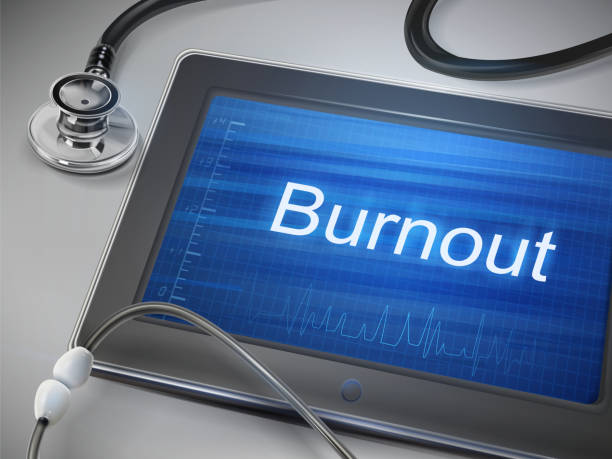What is Burnout?
Burnout is a special type of work-related stress. The term is used to describe a group of signs and symptoms that consistently occur together and are caused by chronic workplace stress. While Burnout is not considered a medical diagnosis, it can affect your physical and mental health.
Some of the most common signs of burnout include:
Feeling cynical or critical about your job/career
Difficulty getting to work each day, lack of motivation
Feeling irritable or having a lack of patience with co-workers, customers, or clients
Lacking the energy to be consistently productive and/or lacking satisfaction from your work achievements
Difficulty sleeping and poor self-care practices in your personal life
Using food or substances to feel better or avoid feelings
Physical symptoms such as unexplained headaches, stomach or bowel problems or other physical complaints
Possible causes of job burnout
Job burnout can result from various factors including:
Lack of control. An inability to influence decisions that affect your job – such as your schedule, assignments, or workload.
Boredom. Long-term boredom can have a negative impact on mental health and wellbeing. Much like burnout – a state of emotional, physical and mental exhaustion caused by chronic stress – boredom can deplete our energy and motivation while contributing to increased stress and low mood.
Unclear job expectations. If you’re unclear about the degree of authority you have or what your supervisor or others expect from you, you’re not likely to feel comfortable at work.
Dysfunctional workplace dynamics. Drama, gossip, working with an office bully, or feeling undermined by colleagues or supervisors can contribute to job-related stress.
Extremes of activity. When a job is monotonous or chaotic, you need constant energy to remain focused – which can lead to fatigue and job burnout.
Work-life imbalance. Difficulty setting workload limitations, saying no, or placing more importance on completing work tasks, often results in a lack of energy and time to spend with family, friends, or leisure activities. This leads to burn-out.
Handling Job Burnout
Evaluate your options and seek support. Discuss specific concerns with your supervisor. Gather information around work options such as schedule modifications, workload expectations or task prioritizing. If you have access to an employee assistance program, take advantage of relevant services.
Practice Self-care: Self-care includes anything you do to keep yourself healthy – physically, mentally and emotionally. Although prioritizing self-care may sound like common sense, it’s often the first thing we ignore when we feel overwhelmed or experiencing burnout. Engaging in a self-care routine has been clinically proven to reduce or eliminate anxiety and depression, reduce stress, improve concentration, minimize frustration and anger, increase happiness, improve energy, and more.
Set your intentions. Intentions aren’t to be confused with goals: They are about how you want to respond to the world around you (including your work environment). For example, “Today I intend to take regular breaks at work, to avoid workplace drama, and to face workplace situations with openness, patience, and without judgment.”
Establish a daily routine. Routines help us to create positive daily habits that promote self-care and feelings of control in how we choose to navigate each day. Including things like physical activity, mindfulness, social connection, family time, and sleep hygiene practices can help you feel more fulfilled in several areas of your life.
Consider a career change. While switching careers might seem overwhelming, finding a job that embraces your passions or offers you a better work/life balance can be life changing.
References:
Canadian Psychological Association: https://cpa.ca/psychology-works-fact-sheet-workplace-burnout/
INC: https://www.inc.com/marla-tabaka/setting-goals-isnt-enough-setting-daily-intentions-will-change-your-life.html
Mayo Clinic https://www.mayoclinic.org/healthy-lifestyle/adult-health/in-depth/burnout/art-20046642
Northeastern University: https://www.northeastern.edu/graduate/blog/6-signs-time-change-careers/
Southern New Hampshire University: https://www.snhu.edu/about-us/newsroom/health/what-is-self-care
Very Well Mind: https://www.verywellmind.com/stress-and-burnout-symptoms-and-causes-3144516


